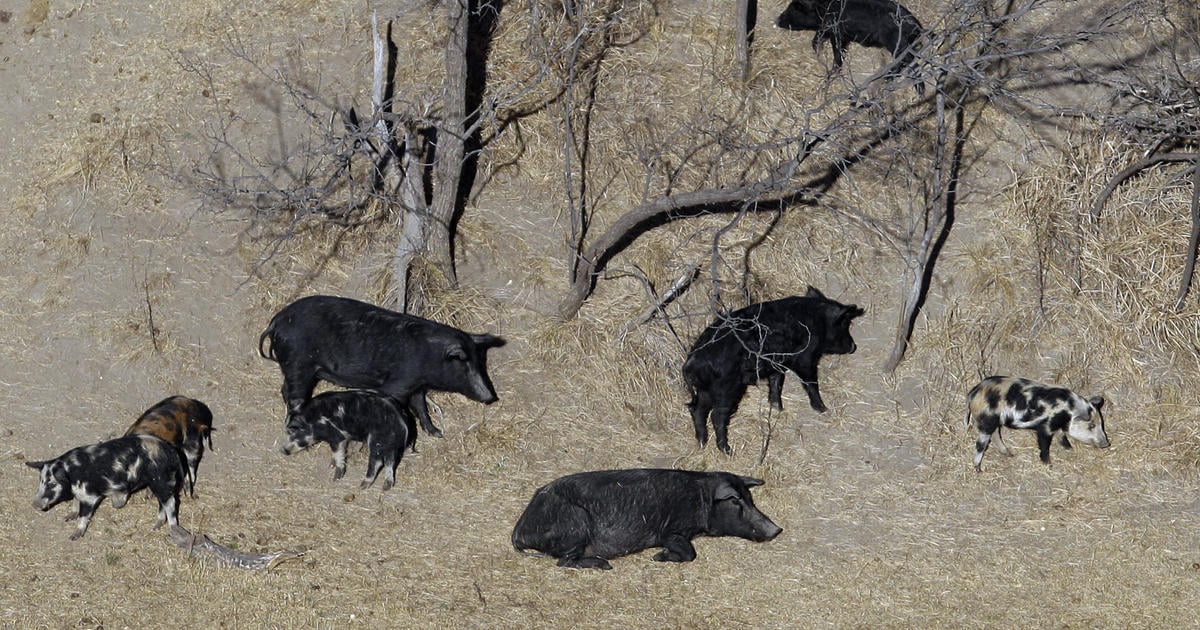An exploding population of hard-to-eradicate “super pigs” in Canada is threatening to spill south of the border, and northern states like Minnesota, North Dakota and Montana are taking steps to stop the invasion.
In Canada, the wild pigs roaming Alberta, Saskatchewan and Manitoba pose a new threat. They are often crossbreeds that combine the survival skills of wild Eurasian boars with the size and high fertility of domestic swine to create a “super pig” that’s spreading out of control.
Ryan Brook, a professor at the University of Saskatchewan and one of Canada’s leading authorities on the problem, calls feral swine, “the most invasive animal on the planet” and “an ecological train wreck.”



deleted by creator
Not in the US, unless you have proof I haven’t seen. They literally don’t need to, as per the article they already breed faster in the wild than we can kill them, seems like a waste of money to breed them when you can just use the wild ones that are already there.
They are bred with domestic pigs so they have less survival instinct and the clients can find them (i.e. they don’t avoid blinds and feeders). One-off clients would give your ranch bad reviews if they didn’t see anything all weekend. Meanwhile regular hunters understand truly wild animals can elude you for days. If a visiting group has come up dry all weekend they might even release a sacrificial domestic pig (just out of sight) that will then walk right towards the clients, innocently arranging it’s own death. Source: am Texan who hunted pigs.
So the releaser is standing downrange? Not buying your source, sorry, I’m Stephen Hawking.
“just out of sight” was an exaggeration. They could be on the other end of the property to release a pig and its going to head towards the feed and the people… Just like a hungry dog would. Also, blinds usually face a single direction.
Next you’re gonna have me call your uncle Larry to corroborate your story, right?
Uncle Larry is a pig, he can’t use a phone!
Hold up the phone to him, I also have a cop uncle so I picked up a few phrases.
Never underestimate Cletus
So just making shit up, got it.